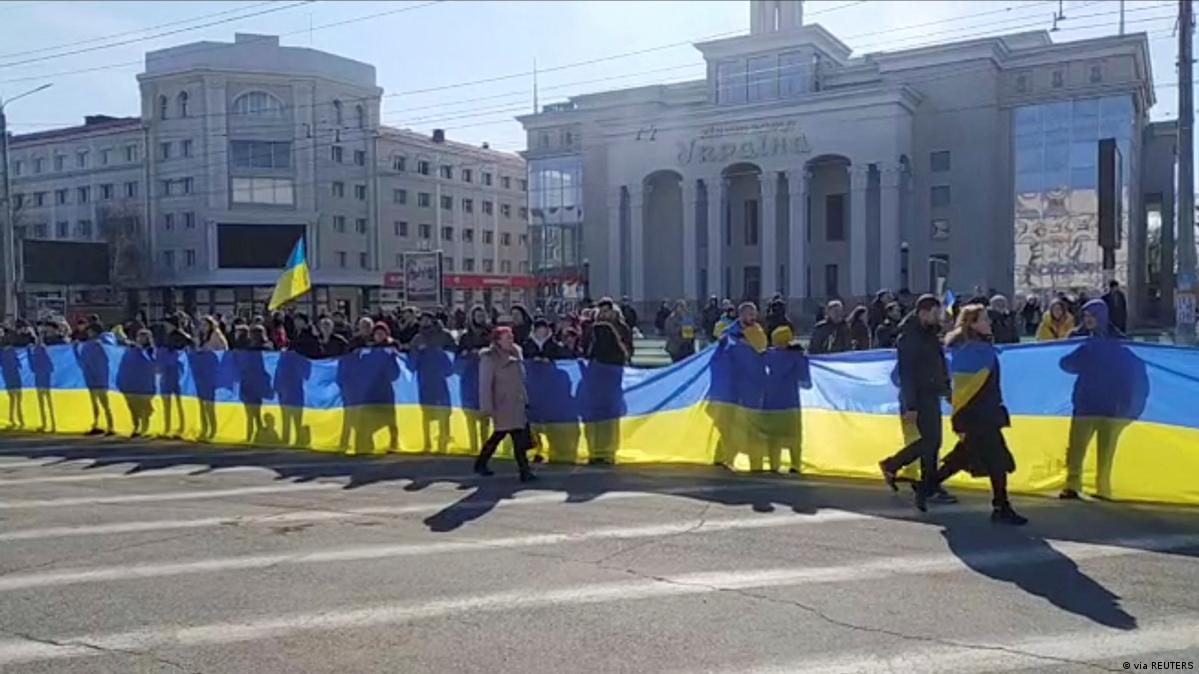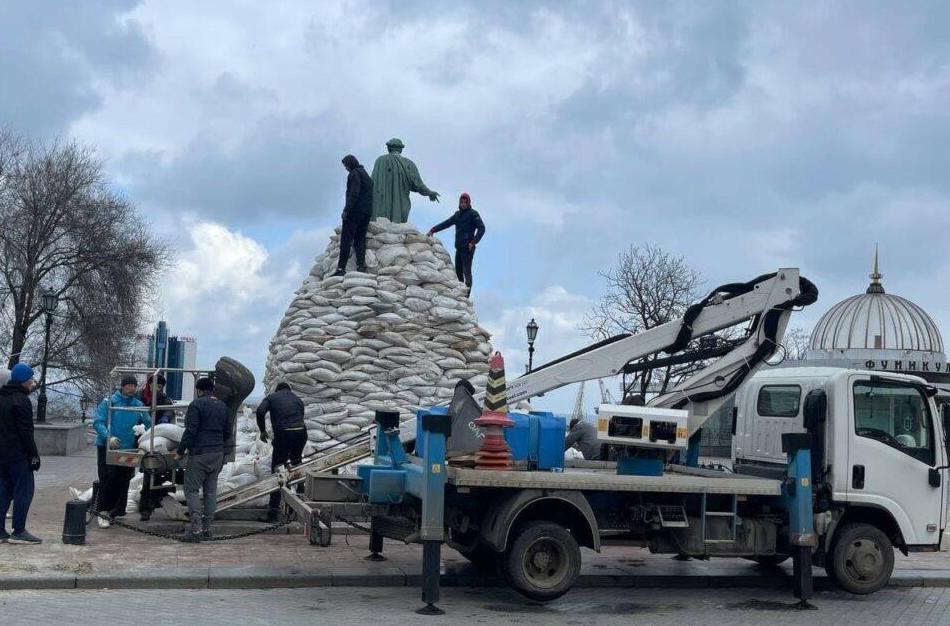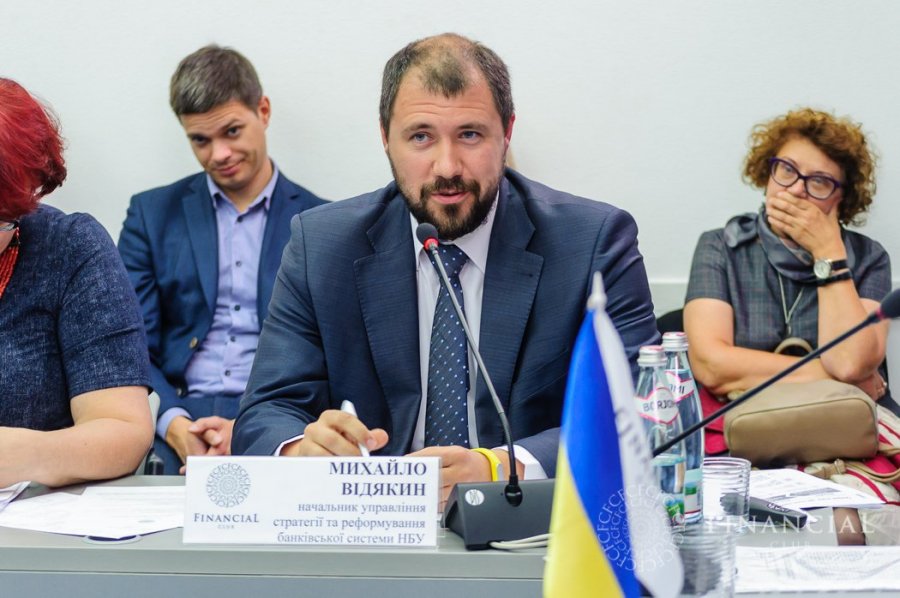On the eve of the invasion of Ukraine, Vladimir Putin stated in a big program address: "Sustainable statehood in Ukraine did not work out." The Kremlin’s perception of Ukraine as a failed state, a “failed state,” became one of the reasons for the blitzkrieg attempt in February 2022, and then led to its failure. But Ukraine withstood the onslaught of a superior enemy, not only thanks to military efforts and the heroism of the military, but also because of the successful organization of the rear, which is impossible without the effective work of the state. Kremlin experts, whose reports ended up on Putin's desk, simply ignored the fact that since 2014 Ukraine has been undergoing reforms of state institutions, which, despite the resistance of corrupt elites, are leading to serious qualitative changes.
Decentralization and strong rear
One of the postulates of the Kremlin's pre-war propaganda was the conviction that Ukrainian power was imitation, decorative, and that the real power was in the hands of the American embassy and a handful of oligarchs. At moment X (or, if you like, Z), as Putin's strategists pictured it, the Americans and oligarchs will simply leave Ukraine and run away, as they did in Afghanistan, and the "puppet government" will fall apart in a couple of days. In addition to great-power arrogance, there is also an inability to imagine any other state structure other than Russian super-centralization, where all the threads of control go to the “center”. Even if Russian sabotage groups managed to kill or capture Zelensky in the early days, resistance would continue due to the decentralized government of the country.
When decentralization started in Ukraine, many skeptics, including those inside the country, predicted that it would lead to disintegration or “federalization”, worsening governance. In practice, it was this reform that increased the stability of the state. Decentralization was started under Poroshenko and continued under the Zelensky administration. Its goal was to expand the powers of local self-government in terms of managing finances and implementing regional development programs.
At the same time, an administrative-territorial reform was carried out, which was based on a new unit – a united territorial community (community), which brought local self-government services closer to local communities. After the changes made to the Tax and Budget Codes in 2015, territorial communities received the right to dispose of 100% of the fees from the single tax, property tax, income from administrative services, 60% from the tax for individuals remain locally.
Under wartime conditions, the local authorities, having received more rights and resources, were able to provide the Armed Forces of Ukraine and accommodate refugees, as well as continue to work effectively in an autonomous mode. Local self-government in the regions under attack became another line of defense, and under the conditions of occupation – a hotbed of resistance.
Local self-government has become another line of defense, and under the conditions of occupation – a hotbed of resistance
A good example is Kherson, captured by the Russians, where the mayor of the city, Igor Kolykhaev, remained in the city and continued to provide for its life, without collaborating with the invaders, and the Ukrainian flag hung over the city hall for a long time (at the end of June, Kolykhaev was abducted by Russian security forces, and the authorities passed to the puppet "administration"). Cases of betrayal among local self-government workers were isolated due to the election and accountability of the heads of administrative units to the territorial communities. Eyewitnesses note that this “nuance” was poorly understood by the occupying authorities, who, according to the Russian tradition, perceived the mayors of cities and villages as dependent appointees of the center.

People's Deputy Vitaly Bezgin, head of the parliamentary subcommittee on administrative-territorial reform, gives even such a non-obvious example of how the administrative reform contributed to the defense of the country and complicated the plans of the invaders: “They relied on old maps, old approaches to how our state works. And they were absolutely unprepared for the fact that in fact everything functions differently. ”
Under martial law, the Ministry of Regional Policy, together with the relevant committee of the Verkhovna Rada and the Association of Cities of Ukraine, is developing wartime amendments for the administrative-territorial system related to security issues. All territories will be divided into four types: temporarily occupied, territories of military operations, stronghold territories that help the theater of operations, and territories of the deep rear, to which refugees will be evacuated and production will be temporarily moved. An example of such a territory is the Odessa region, which is a logistics center for the front-line Mykolaiv region, and the rear areas are the Transcarpathian and Chernivtsi regions on the western borders. In accordance with this division, the tax system will also be adapted to the requirements of wartime: for example, the territories of the deep rear will be given the right to administer local taxes.

Now local self-government faces the problem of the imbalance caused by the hostilities. The outflow of the population and the transfer of enterprises from the frontline regions reduces the local tax base and requires additional support from the national budget. Experts also note that the creation of free economic zones to stimulate business in the rear areas should be balanced with revenues to local budgets.
financial front
One of the important frontiers of state stability is the financial system. In 2014, the Russian invasion of Crimea and Donbass caused the hryvnia to collapse and inflation soared by 40%. In 2022, despite larger threats, Ukraine's financial system has held its ground. From the first days, the National Bank of Ukraine has taken a number of measures to overcome the inevitable panic among the population and maintain financial stability. Already on February 24, the NBU prepared the rules for the operation of the banking system in wartime, aimed at curbing the devaluation of the national currency. To keep the depreciation of the hryvnia, the NBU fixed its exchange rate against the dollar. The restriction on setting the exchange rate was in effect until May 2022. For the duration of the war, the NBU abandoned the inflation targeting policy that it adhered to in peacetime.
The well-coordinated work of the National Bank became possible thanks to the reforms in the financial sector carried out in 2014-2016. Former Head of the Strategy Department of the National Bank of Ukraine Mykhailo Vidyakin, who was then head of the Banking System and National Bank Reform Office, in an interview with The Ιnsider said that the stability of the country's financial system was built during these years. “Over those three years, Ukraine has moved from an oligarchic financial market to a transparent and civilized one, which allowed the National Bank to move to the best world inflation targeting practices,” he says.

As part of the reform, the banking system was rehabilitated. The National Bank demanded from Ukrainian banks the disclosure of ultimate beneficiaries, transparency of transactions with related parties, additional capitalization based on the results of stress testing, as well as compliance with international financial monitoring rules, which left only stable and transparently operating institutions on the market. According to Vidyakin, out of 180 banks operating in 2014, about 70 remained as a result of the “recovery”. The culmination was the nationalization of Privatbank, the largest bank in the country, controlled by oligarch Igor Kolomoisky.
But most importantly, the reformed National Bank managed to build a systematic work aimed at performing the key functions of the central bank, not depending on personalities or changes in governments. The management structure was optimized and centralized, the decision-making system was reformed, the institutional and functional role of the central bank in the financial market was strengthened by law, and the NBU got rid of a number of non-core functions and assets that made the work of the institution cumbersome.
According to Vidyakin, the independence of the National Bank as an institution was the key to the success of the reforms. Back in 2015 , a number of laws were adopted to strengthen the independence of the NBU in developing financial policy. This work was continued under President Zelensky. Strengthening the independence of the country's main bank is one of the requirements of the IMF, which provided loans to the Ukrainian economy.
The main challenge for the financial system remains the crisis in the real sector of the economy – the war dealt a serious blow to business. In January-March 2022, Ukrainian banks received a negative financial result of UAH 160 million. The picture was spoiled by March, when the net loss of banks against the backdrop of the war amounted to 10.07 billion hryvnia. In January-February, the net profit of the banking system reached UAH 9.91 billion.
Due to the reduction in the tax base, the fiscal deficit is about $5 billion a month, about 30% of monthly pre-war GDP. The budget is filled with taxes by about a third, the rest is supplemented by the sale of military bonds by the National Bank and foreign aid.
Doubts and disagreements
Serious disagreements remain between the National Bank and the Ministry of Finance about the priorities of the wartime economy: the NBU seeks to control inflation and prevent its growth, the task of the Ministry of Finance is to fill the budget by any means here and now. For example, one of the controversial points was the increase by the National Bank with the Cabinet of Ministers of the discount rate from 10% to 25% in order to curb inflation and preserve income and savings in hryvnia. This decision led to an increase in the yield of government bonds and the demand for them from private banks. At the same time, the Ministry of Finance believes that government bonds during the war should be a tool to support the state, and not a way to earn money on interest, in addition, the government believes that high inflation will allow a sharp and immediate increase in budget revenues.
Ukrainian economist Yuriy Gorodnichenko, who works at the University of California, believes that Ukraine's dependence on external injections and interventions of the National Bank cannot ensure the stability of the war economy. “Cutting taxes at the start of the war with the expectation of giving liquidity to businesses and people was the right thing to do. But in the [longer] perspective, in the context of high military spending, cutting taxes completely is wrong … It seems to me that in the end, in the realities of the war, Ukraine will come to the second philosophy, when it is necessary to focus on fees here and now in order to pay for this war. Most likely, a progressive scale of taxation will be introduced, and not flat, as it is now. Import tax, value added tax, etc. will be increased.” The Ukrainian government is already following this path; from July 1, VAT was restored for imported goods and import duties.
Although there are no visible outlines of the end of the war, plans are being actively developed to restore the Ukrainian economy. The most famous is the Plan for the Reconstruction of Ukraine , developed by a group of world-famous economists, including Ukrainians Yuriy Gorodnichenko and Timofey Mylovanov, Russian emigrant Sergei Guriev and Kenneth Rogoff from Harvard (former IMF chief economist). It draws on the experience of the Marshall Plan for post-war Europe and will require between 200 and 500 billion euros. The authors of the plan proceed from the fact that the key to Ukraine's rapid recovery should be its economic integration with the EU, which will help to mobilize resources to the maximum and finally free the Ukrainian economy from dependence on Russia. But for this, Ukraine will have to carry out reforms to approach European standards simultaneously with the process of reconstruction, which will be a serious challenge for the country and its political elite.



